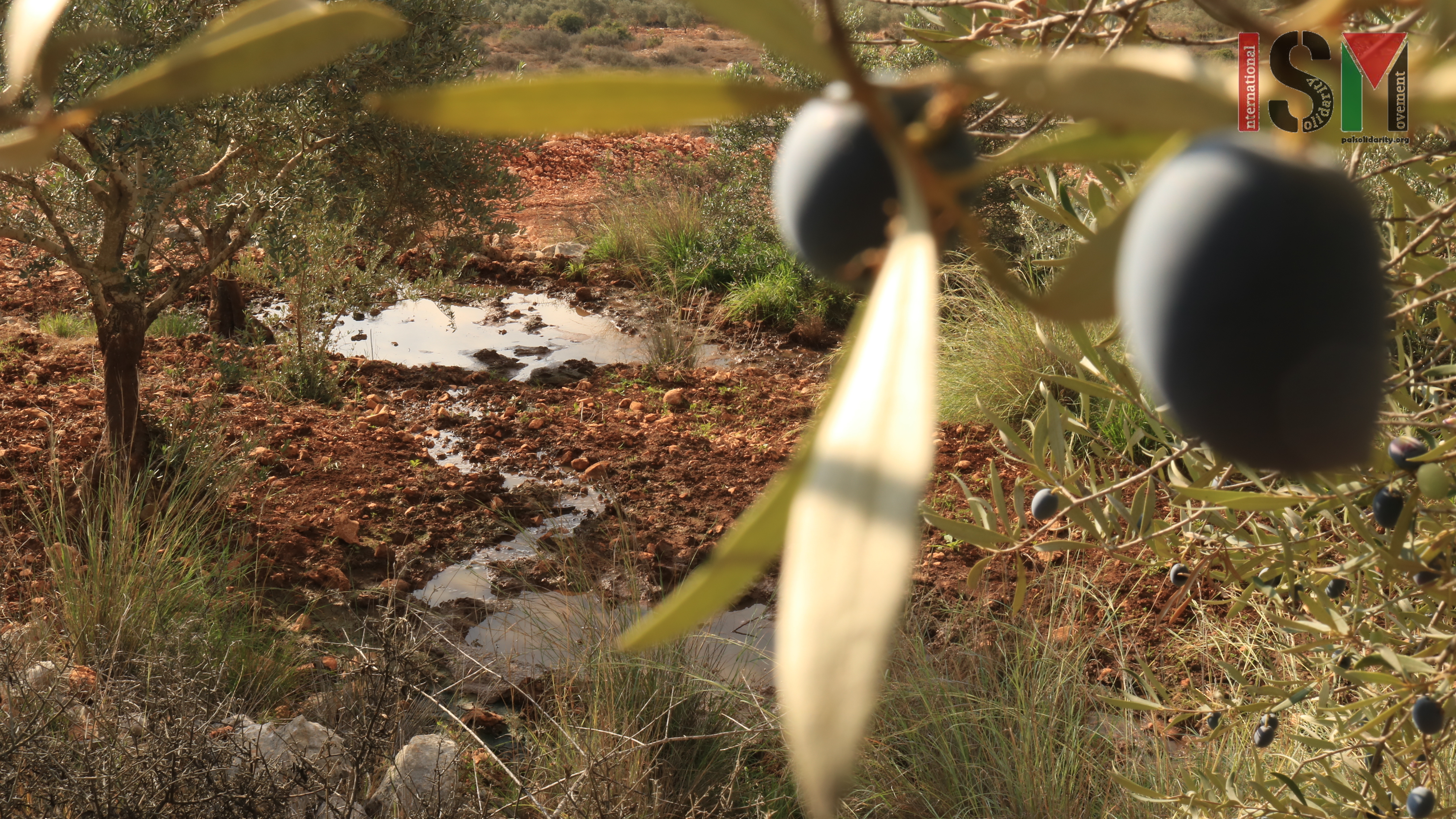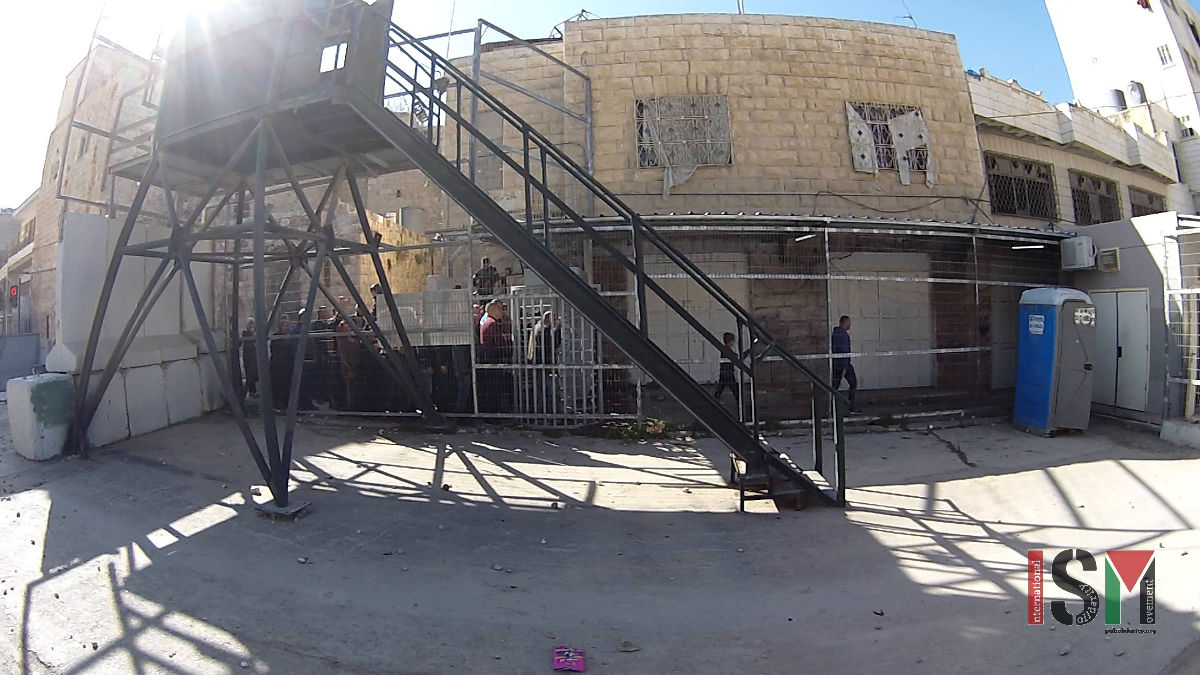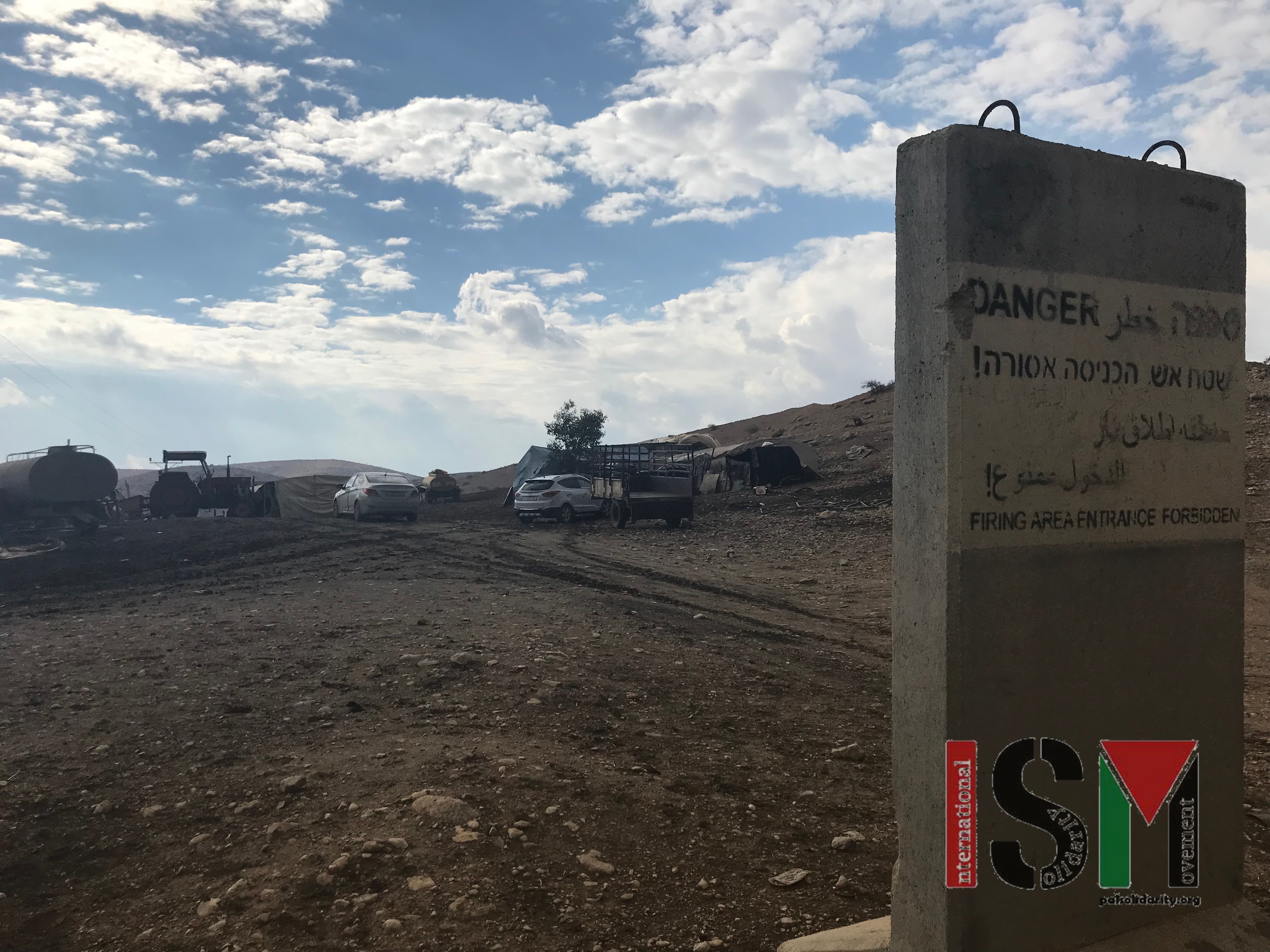Category: Features
-
Settlement Pollutes Palestinian Olive Groves With Sewage Water
November 2017 | International Solidarity Movement, Nablus team | Nablus, Occupied Palestine The farmers in South Bruqin have had to face the difficulties living next to, and having land stolen by, the illegal settlement of Bruchin since 2000. The last eastern expansion of the settlement led not only to a new settler road cutting through…
-
Arbitrary Delays Prevent Worshippers From Reaching Ibrahimi Mosque
3rd December 2017 | International Solidarity Movement, al-Khalil team | al-Khalil, Occupied Palestine On Friday the 1st of December, occupation forces at the Qeitun checkpoint blocked the way to the mosque for an extra long time, thereby delaying Palestinian families on their way to prayer in the Ibrahimi mosque. To reach the Ibrahimi mosque, Palestinians…
-
Ethnical cleansing in the Jordan Valley
26th November 2017 | International Solidarity Movement, Team Nablus | Jordan Valley Solidarity | Jordan Valley, Occupied Palestine Israeli forces have sent out demolition orders to two villages in the northern Jordan Valley, where they plan to demolish the homes of around 300 Palestinians. This is part of the Israeli military’s ongoing efforts ethnically cleanse…



